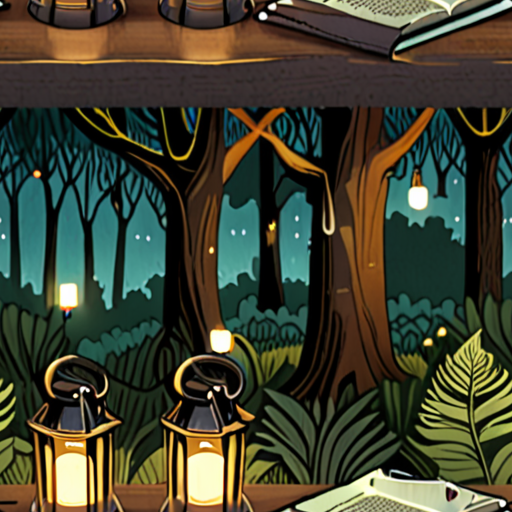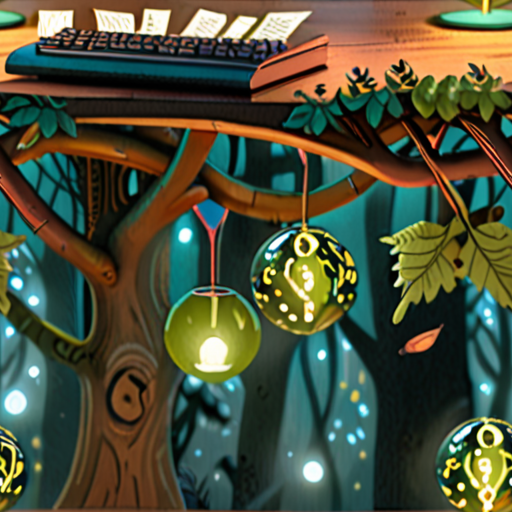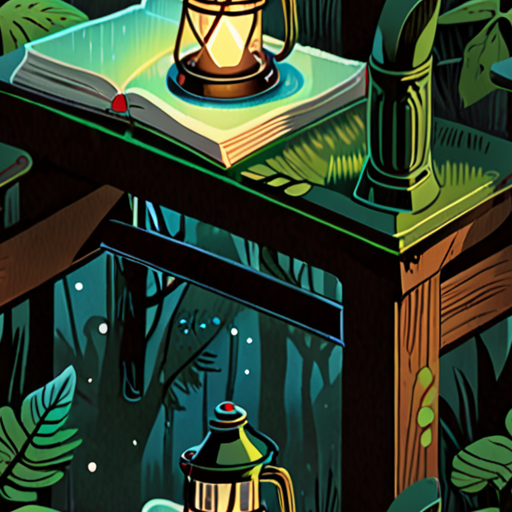Aspiring authors often face numerous challenges when it comes to crafting compelling stories and bringing their unique voices to life. With the abundance of fiction writing resources available, it can be overwhelming to determine which tools and techniques will truly aid in the creative process. From leveraging AI-powered writing tools to mastering the craft of storytelling, understanding the fundamentals of narrative structure, and developing a writing routine, aspiring authors require a comprehensive guide to unlock their full potential.

Can ChatGPT Help with Writing?
I’ve experimented extensively with ChatGPT, and I’m excited to share my findings with you.
- ChatGPT can indeed assist with writing, particularly for those who struggle with ideas, organization, or grammar.
- As a writer myself, I’ve found ChatGPT to be a valuable tool for generating ideas, outlining articles, and even editing drafts.
- However, it’s essential to remember that ChatGPT is not a replacement for human creativity and expertise.
The Benefits of Using ChatGPT for Writing
- Improved Idea Generation: ChatGPT can help stimulate ideas and provide suggestions for topics, characters, or plot twists.
- Enhanced Organization: ChatGPT can assist with outlining articles, breaking down complex topics into manageable sections, and suggesting transitions between paragraphs.
- Better Grammar and Spelling: ChatGPT can review and edit drafts, pointing out grammatical errors, punctuation mistakes, and spelling inconsistencies.
Limitations of Using ChatGPT for Writing
- Lack of Human Touch: While ChatGPT can generate coherent text, it often lacks the nuance, emotion, and personal touch that a human writer brings to a piece.
- Dependence on Data Quality: ChatGPT’s accuracy relies heavily on the quality and relevance of the training data it was fed.
- Risk of Overreliance: Writers may become too reliant on ChatGPT, neglecting their own creative skills and judgment.
Best Practices for Using ChatGPT with Writing
- Use ChatGPT as a Tool, Not a Replacement: View ChatGPT as a helpful assistant, rather than a substitute for your own writing abilities.
- Review and Edit Carefully: Always review and edit ChatGPT-generated content carefully to ensure accuracy, coherence, and style.
- Continuously Improve Your Skills: Regularly practice writing, reading, and learning to stay ahead of the curve and maintain your unique voice and perspective.
Conclusion
In conclusion, ChatGPT can be a valuable asset for writers, offering assistance with idea generation, organization, and grammar. However, it’s crucial to remember its limitations and use it judiciously, always prioritizing your own creative input and expertise.
Writing Fiction Effectively
As a writer, I’ve learned that crafting compelling stories requires a combination of creativity, discipline, and technical skill.
- Develop Your Writing Habit
- Understand Your Genre
- Create Believable Characters
- Build a Strong Plot
- Show, Don’t Tell
- Edit and Revise
Establishing a regular writing routine helps you stay focused and productive. Set aside dedicated time to write, and stick to it.
Familiarize yourself with the conventions and expectations of your chosen genre. This will help you craft a story that resonates with your target audience.
Your characters should feel real and relatable. Give them unique personalities, motivations, and backstories to make them more believable.
A well-crafted plot keeps readers engaged and invested in the story. Use conflict, tension, and resolution to drive the narrative forward.
Rather than telling readers what’s happening, show them through descriptive language and sensory details. This immerses them in the world you’re creating.
No manuscript is perfect on the first draft. Take the time to edit and revise your work, making sure it’s polished and error-free.
Tips for Effective Storytelling
Here are some additional tips to help you write fiction effectively:
- Write in a Consistent Voice
- Use Sensory Details
- Make Your Dialogue Count
- Pacing is Key
- Get Feedback
Develop a distinct writing style that reflects your unique perspective and tone.
Incorporate sensory descriptions to bring your story to life and engage readers’ senses.
Dialogue should reveal character traits, relationships, and backstory. Use it sparingly and effectively to advance the plot.
Vary the pace of your story to keep readers engaged. Use suspense, tension, and resolution to control the tempo.
Share your work with others and ask for constructive feedback. Use this input to improve your writing and storytelling skills.
Final Tips for Success
To become a skilled fiction writer, remember these final tips:
- Read Widely
- Practice Regularly
- Stay Patient and Persistent
Study the work of other authors, paying attention to structure, pacing, and character development.
The more you write, the better you’ll become. Make writing a habit and commit to regular practice.
Writing fiction takes time, effort, and dedication. Stay committed to your goals and keep working towards success.

Is There an App to Help You Write a Book?
As a writer, I’ve often found myself struggling to stay organized and focused while working on my novel.
- Sometimes, it feels like there are too many ideas swirling around in my head, making it difficult to keep track of plot twists and character developments.
- Other times, I get stuck on a particular scene or chapter, and I need something to help me push through the creative block.
The Power of Writing Apps
That’s where writing apps come in – tools designed to help writers like me stay productive, organized, and inspired.
- Scrivener: A popular choice among writers, Scrivener offers a comprehensive set of features tailored specifically for long-form writing projects like novels.
- Ulysses: Another favorite among writers, Ulysses provides a distraction-free writing environment, customizable workflows, and seamless organization capabilities.
- YWriter: A free writing software, YWriter helps writers break down their manuscript into manageable chunks, set word count targets, and track progress.
- Novelize: A web-based writing platform, Novelize offers real-time collaboration tools, customizable templates, and analytics to help writers stay on track.
Choosing the Right App for You
With so many options available, it can be overwhelming to decide which app is best suited for your needs.
Consider the following factors when selecting a writing app:
- Your writing style and preferences
- The type of project you’re working on (e.g., novel, screenplay, essay)
- The level of organization and structure you require
- The availability of features like collaboration tools and analytics
Ultimately, the right app for you will depend on your unique writing needs and goals.
I recommend exploring each option, reading reviews, and trying out demos before making a decision.
By finding the perfect writing app, you’ll be able to stay focused, productive, and inspired – helping you bring your book to life.

Where Famous Writers Get Their Ideas
As a writer myself, I’ve often wondered how others come up with their incredible story ideas. Where do famous writers draw inspiration from? What sparks their creativity? In this article, we’ll delve into the world of idea generation and explore the habits of successful writers.
The Power of Observation
One of the most effective ways to generate ideas is through observation. As Andrea Barrett notes, “my imagination is nourished by old books, old bones, fossils, feathers, paintings, photographs, museums of every kind and size, microscopes and telescopes, plants and birds.” By paying attention to the world around us, we can gather a wealth of information and inspiration.
People Watching
People watching is another great way to spark creativity. Observe the people around you – their mannerisms, conversations, and interactions. These observations can lead to fascinating characters and storylines.
Reading and Research
Reading widely and conducting thorough research are essential skills for any writer. By immersing ourselves in different genres, styles, and topics, we can gain a deeper understanding of the world and its complexities.
Learning New Things
I’m a firm believer in the importance of lifelong learning. As I mentioned earlier, I enjoy learning new things, and this curiosity has fed my fiction. Whether it’s reading about science, history, or culture, expanding our knowledge can open doors to new ideas and perspectives.
Writing Communities and Workshops
Joining writing communities and attending workshops can be incredibly beneficial for idea generation. Sharing experiences, receiving feedback, and learning from others can help us grow as writers and develop our unique voices.
James Whitfield Thomson’s Writing Platform
My own writing platform, JamesWhitfieldThomson.com, aims to provide valuable insights and resources for writers. From storytelling techniques to narrative development, we cover a range of topics to help you improve your craft.
Competitors and Industry Insights
While there are many talented writers out there, I believe that my platform stands out due to its unique approach and dedication to helping writers succeed. Other notable platforms, such as Gotham Writers Workshop, offer excellent resources and support for writers.
Best Practices for Idea Generation
To maximize your idea generation potential, remember to:• Observe the world around you• Read widely and conduct thorough research• Learn new things and stay curious• Join writing communities and attend workshops• Develop your unique voice and styleBy incorporating these habits into your writing routine, you’ll be well on your way to generating innovative ideas and producing high-quality work. Remember to always follow best practices and stay true to your artistic vision. Happy writing!
The Six Essential Elements of Fiction
As a writer, understanding the fundamental building blocks of fiction is crucial for crafting engaging stories that captivate audiences.
-
Characters
Characters are the heart of any fictional work, driving the plot forward and evoking emotions in readers. They can be people, animals, or even abstract entities, and their actions, thoughts, and dialogue shape the narrative.
-
Setting
The setting provides the backdrop against which the story unfolds, influencing the mood, atmosphere, and overall tone of the narrative. It can be a real-world location, a fantasy realm, or a combination of both.
-
Plot
The plot is the sequence of events that makes up the story, typically involving a conflict or problem that the protagonist must resolve. A well-crafted plot keeps readers engaged and invested in the outcome.
-
Conflict
Conflict is the engine that drives the plot forward, creating tension and drama as the protagonist navigates obstacles and challenges. Conflict can take many forms, from internal struggles to external threats.
-
Point of View
The point of view determines how the story is told, whether through the eyes of a single character, multiple characters, or an omniscient narrator. Each perspective offers unique opportunities for storytelling and character development.
-
Theme
The theme is the underlying message or idea that emerges from the story, often exploring universal human experiences and emotions. A strong theme adds depth and resonance to the narrative, leaving readers with something to ponder long after finishing the book.
By mastering these six essential elements of fiction, writers can create rich, immersive stories that resonate with readers and leave a lasting impact.

What are the Odds of Becoming a Famous Writer?
The odds of becoming a famous writer are extremely low, with only a small percentage of authors achieving success.
- In the United States alone, approximately 300,000 books are published annually, but only around 0.08% of these make it onto the US Best Seller lists.
- To put this into perspective, you have a lower chance of winning the lottery (1 in 300 million) and being struck by lightning twice (1 in 9 million) than writing a bestselling novel.
However, it’s essential to note that success in writing can take many forms, and there are various paths to achieving recognition and acclaim.
- Developing a unique voice and style: Aspiring writers can hone their craft by reading widely, experimenting with different genres, and developing a distinctive writing voice.
- Becoming part of a writing community: Connecting with fellow writers through online forums, workshops, and writing groups can provide valuable support, feedback, and opportunities for growth.
- Publishing and marketing: Understanding the publishing industry, building a strong online presence, and effectively promoting work can increase visibility and attract readers.
While the odds may seem daunting, many successful writers have achieved fame and fortune through dedication, perseverance, and a willingness to learn and adapt.
Key Takeaways:
- The chances of becoming a famous writer are extremely low, but success can take many forms.
- Developing a unique voice, joining a writing community, and understanding publishing and marketing are crucial steps towards achieving recognition.
Conclusion:
Becoming a famous writer requires a combination of talent, hard work, and strategic planning. While the odds may be against us, by focusing on our craft, connecting with others, and navigating the publishing landscape, we can increase our chances of success and achieve our goals as writers.

0 Comments